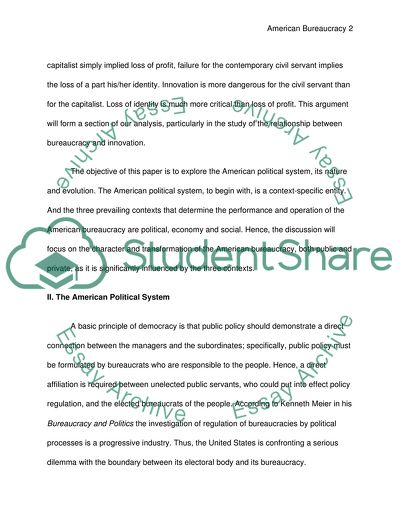Cite this document
(The Character and Transformation of the American Bureaucracy Research Paper, n.d.)
The Character and Transformation of the American Bureaucracy Research Paper. Retrieved from https://studentshare.org/politics/1729408-toolkit-for-public-management
The Character and Transformation of the American Bureaucracy Research Paper. Retrieved from https://studentshare.org/politics/1729408-toolkit-for-public-management
(The Character and Transformation of the American Bureaucracy Research Paper)
The Character and Transformation of the American Bureaucracy Research Paper. https://studentshare.org/politics/1729408-toolkit-for-public-management.
The Character and Transformation of the American Bureaucracy Research Paper. https://studentshare.org/politics/1729408-toolkit-for-public-management.
“The Character and Transformation of the American Bureaucracy Research Paper”, n.d. https://studentshare.org/politics/1729408-toolkit-for-public-management.


